30-Second Word Whoop: “Void”
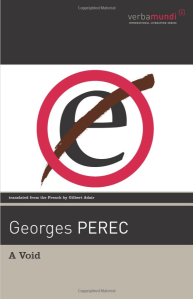 Arguably the most novel novel of all time is A Void by Georges Perec, as much a word game as an invention. The book is wholly void of the common letter E. Even more impressive: It was translated from its original, E-depleted French version. And it’s not even a bad novel.
Arguably the most novel novel of all time is A Void by Georges Perec, as much a word game as an invention. The book is wholly void of the common letter E. Even more impressive: It was translated from its original, E-depleted French version. And it’s not even a bad novel.
I’m unsure I could write a sentence sans E let alone a 288-page book. Here is an E-less plot synopsis:
“As his country is torn apart by social and political anarchy, Anton Vowl, a chronic insomniac, falls off all radar. Ransacking his Paris flat, a group of his faithful companions trawl through his diary for any indication, for any faint hint, as to his location.”
PrEtty MEaty.
“Void” as a noun rings hollow. As an adjective it’s invalid or not binding. It feels fairly non-binding as a verb as well (to empty or to cancel), accompanied by a sickening whooshing sound. “Devoid” is even more depraved. Funny the verb and adjective are older than the noun, each deriving from Anglo-French circa the 1300s while the noun emerged — not in a vacuum — in the 1600s.
What’s with that “null and void” redundancy? Early legalese, from medieval times when lawyers paired words from different languages to cast out any ambiguity or to add emphasis. Other examples of linguistic doublets: “breaking and entering” (English/French), “fit and proper” (English/French), “lands and tenements” (English/French), “will and testament” (English/Latin), “have and hold” (English/English — gotcha!).
As depressing as it sounds, “void” has a playful side. In card games like bridge or whist it refers to a suit from which a player is dealt no cards.

A still from the 1943 Hitchcock movie Shadow of a Doubt in which Alfred Hitchcock makes a cameo holding this “perfect” bridge hand, void of everything but spades.
Play your cards right, though, and “void” has a bright side. One can be void of malice or bacteria. Maybe not so much bacteria.
Constructions like “avoid” are less involuntary, even empowering. We actively avoid people, places and things that mean us harm. Though there might be a hint of passivity in avoidance.
If I could avoid my weekly margarita binge that fills the senseless void, I’d do less voiding of both bladder and bank account.
As you ponder the void, enjoy a dance break from 1980s South African sensation éVoid, whose thing is also wordplay:
30-Second Word Whoop: “Easel”
 Say “easel” aloud three times fast. EAS-el, EAS-el, EAS-el. Feel like an ass or a braying donkey?
Say “easel” aloud three times fast. EAS-el, EAS-el, EAS-el. Feel like an ass or a braying donkey?
Turns out the word does come from the Dutch ezel, originally “ass,” from the Middle Dutch esel, from the Latin asinus, or “ass.” The comparison, according to the Online Etymology Dictionary, is to “loading a burden on a donkey and propping up a painting or canvas on a wooden stand,” or a sawhorse.
Almost reduces fine art to the domain of peasants.
Rudyard Kipling’s poem The White Man’s Burden pops to mind. It was published in 1899 in Life magazine alongside this political cartoon showing imperialist bourgeoisie riding “sullen peoples” in developing countries as if they were burros.
 Easel-wise, somehow France is the country that most often comes to mind, civilized and sophisticated with accessories of paint palette and beret. An easel today can be made not only of wood but metal or Playskool plastic. You see them equally at home straddling early-education nooks and retirement retreats.
Easel-wise, somehow France is the country that most often comes to mind, civilized and sophisticated with accessories of paint palette and beret. An easel today can be made not only of wood but metal or Playskool plastic. You see them equally at home straddling early-education nooks and retirement retreats.
Interesting too how this artist’s workbench is both a tool of creation and a pedestal to display all variety of showpiece and advertisement.
Consider a starving street artist, selling her labors to afford her next meal. Art is definitely that unique field where Indigenous, simple folk and wealthy snobs intersect. As the rich rack up trips abroad, they collect trophies, displayed like stuffed game around the house.
When an artist faces a blank canvas, does she feel the burden of creation? Is it a job like any other, performed by calloused hands and measured by output?
Some of the burden is no doubt lifted by the easel, making art work a little easier.
30-Second Word Whoop: “Orient”
 First, let’s get oriented. I live in the Western Hemisphere, where fellow juveniles on the playground convinced me I could dig my way to China.
First, let’s get oriented. I live in the Western Hemisphere, where fellow juveniles on the playground convinced me I could dig my way to China.
At the time, we imagined China was about as far away from home as we could get. That was before becoming fully educated (China is not directly opposite the U.S. on the globe; rather, you’d “dig” into the Indian Ocean floor). And these days metaphorically we can navigate beyond the stars.
Orienteering home or elsewhere is dependent on the stars, especially the sun, a compass, and well-honed instincts. “Orient” literally means to “arise” over the mountains. And it’s because the sun rises in the east that “Orient” with a capital “O” became synonymous with the Far East. Funny, because even in the Far East it was referred to as the Orient.
 It’s still fine to refer to rugs as Oriental but not people from the biogeographic region of Southeast Asia south of the Himalayans, the Philippines, Sumatra, Java, Borneo, etc. They are strictly Asian.
It’s still fine to refer to rugs as Oriental but not people from the biogeographic region of Southeast Asia south of the Himalayans, the Philippines, Sumatra, Java, Borneo, etc. They are strictly Asian.
An “old poetic” meaning for orient is also decorative: a pearl of high quality or luster — the quality that determines a pearl’s value. Oriental (which rhymes with ornamental) once meant “being corundum of gemstone quality but resembling another gem.”
Interesting how “(C)china” refers both to an Asian country and priceless, decorative dishes.
An “Oriental shorthair” is not one of those slick Asian-style haircuts but a breed of cat, closely related to the Siamese (head shape).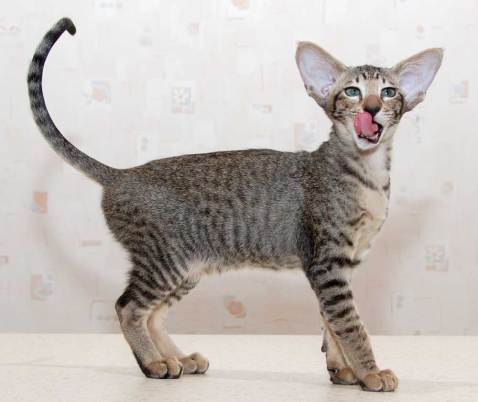
 Both well-appointed with lustrous fur and, one might guess, well-adjusted, easily adaptable, or acquainted to one’s situation. Probably arise at dawn, too.
Both well-appointed with lustrous fur and, one might guess, well-adjusted, easily adaptable, or acquainted to one’s situation. Probably arise at dawn, too.
30-Second Word Whoop: “Abandon”
 To love someone with abandon means to give it your all. Yet “abandonment” can be grounds for legal action.
To love someone with abandon means to give it your all. Yet “abandonment” can be grounds for legal action.
An abandoned puppy inspires pity and tenderness; an abandoned house, fear or disgust.
Let’s break this one down pictorially (because I know you can’t stop looking at the sad puppy picture):
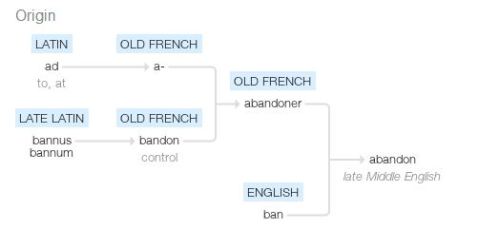 The operative word here is “control.” You lose control when you give up.
The operative word here is “control.” You lose control when you give up.
Abandon an idea (it dies); abandon a property (other forces like decline and decomposition take over); abandon a fight (the bad guys win); abandon a family (you are dead to them, Bud).
To eat or do anything with wild abandon? Requires exercising no self-control.
What I like about “abandon,” is it almost always gets to be on the first page of the dictionary. There’s a hidden definition for “abandoned” in mine — means “shamefully wicked” or “immoral.” So let’s check the other “good book” for some religious authority:
From Romans 1:27: “In the same way the men also abandoned natural relations with women and were inflamed with lust for one another.”
From 1 Timothy 4:1: “The Spirit clearly says that in later times some will abandon the faith and follow deceiving spirits and things taught by demons.”
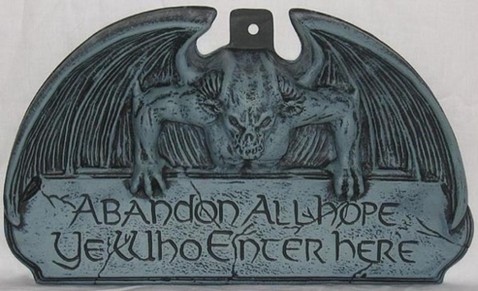 Dante’s early-14th-century epic poem Divine Comedy originated that not-so-tickly phrase: Abandon all hope ye who enter here,” the supposed warning at the gates of hell. From the 1814 translation into English by the Rev. H. F. Cary:
Dante’s early-14th-century epic poem Divine Comedy originated that not-so-tickly phrase: Abandon all hope ye who enter here,” the supposed warning at the gates of hell. From the 1814 translation into English by the Rev. H. F. Cary:
Through me you pass into the city of woe:
Through me you pass into eternal pain:
Through me among the people lost for aye.Justice the founder of my fabric mov’d:
To rear me was the task of power divine,
Supremest wisdom, and primeval love.Before me things create were none, save things
Eternal, and eternal I endure.
All hope abandon ye who enter here.Such characters in colour dim I mark’d
Over a portal’s lofty arch inscrib’d:
Whereat I thus: Master, these words import.
I echo the sentiment. Words carry great import; use them wisely. Abandon not thy dictionary.
30-Second Word Whoop: “Drag”
“Drag” sounds like no fun, unless you happen to be a smoker or cross-dresser.
Crosswinds can cause drag while sailing or racing.
Sometimes we must drag ourselves out of bed while dragging our favorite blankie and it’s all we can muster to drag a comb through our hair.
It’s no surprise, if you are a smoker, or even a judgmental non-smoker, that the roots of “drag” sound like a fire-breathing dragon, as in “Puff the Magic …”
According to the Online Etymology Dictionary, the verb form comes from the mid-15th century:
… from Old Norse draga, or a dialectal variant of Old English dragan “to draw,” both ultimately from Proto-Germanic *dragan “to draw, pull,” from PIE root *dhragh- “to draw, drag on the ground” (cf. Sanskrit dhrajati “pulls, slides in,” Russian drogi “wagon;” but not considered to be directly the source of Latin trahere).
The smoking definition is more modern:
Meaning “to take a puff” (of a cigarette, etc.) is from 1914. Related: Dragged; dragging. Drag-out “violent fight” is from c.1859. To drag (one’s) feet (1946, in figurative sense) supposedly is from logging, from a lazy way to use a two-man saw.
The “can I get a light?” strumpet character Rizzo in “Grease” famously drags down the song “Summer Nights” with her line “… ’cause he sounds like a drag.”
 Later, she rallies during a stealthy drag-racing challenge. She also drags the innocent Sandy into dressing more like a sexpot — which, generally, is how drag queens try to dress. You rarely see anyone in drag wearing a Betty Crocker ensemble — except maybe in “Tootsie.” Or Great Britain.
Later, she rallies during a stealthy drag-racing challenge. She also drags the innocent Sandy into dressing more like a sexpot — which, generally, is how drag queens try to dress. You rarely see anyone in drag wearing a Betty Crocker ensemble — except maybe in “Tootsie.” Or Great Britain.
(By the way, there is such a term as “drag king” — applied typically to lesbians who wear ties and suits and such.)
Dredging up more derivatives:
c.1300, “dragnet,” perhaps from a Scandinavian source (cf. Swedish dragg “grapnel”) or from Old English dræge “dragnet,” related to dragan “to draw” (see drag (v.)).
Sense of “annoying, boring person or thing” is 1813, perhaps from the notion of something that must be dragged as an impediment. Sense of “women’s clothing worn by a man” is said to be 1870 theater slang, from the sensation of long skirts trailing on the floor (another guess is Yiddish trogn “to wear,” from German tragen); drag queen is from 1941.
Drag racing (1947), is said to be from thieves’ slang drag “automobile” (1935), perhaps ultimately from slang sense of “wagon, buggy” (1755), because a horse would drag it. By 1851 this was transferred to “street,” as in the phrase main drag (which some propose as the source of the racing sense).
In addition to the time trials there are a number of “drag races” between two or more cars. They are run, not for record, but to satisfy the desire of most Americans to see who can get from here to there in the fastest time. [“Popular Mechanics,” January 1947]
Another slang definition for drag is “a person’s story: what they would have you believe.” Usually a lie or fabrication, but not always. As in: Don’t believe her drag, Toots.
Trust me.
- This drag-racing Chevy El Camino is also blowing smoke.
30-Second Word Whoop: “Settlement”
Over a span of four months, we moved twice. Went to settlement on the sale of our two-decade-long suburban settlement in July, then settled on a subpar rental, before settling for a higher purchase price than we’d have liked for a new house. Two months later, we’re still not quite settled.
Moving can be so unsettling.
You can find “settlement” in the legal sense but OUT of the courtroom, or in the lab in a petri dish. Settlement of sediment is always occurring behind the walls or in the pipes of your house. Although you settle down (get fixed up) with a partner, your goal is likely a step up in living standards. A center providing community services for the disadvantaged often is called a “settlement house.” Redundant?

A view of the Israeli settlement of Beitar Illit (foreground), on the outskirts of Jerusalem, on March 8, 2010. Photo by Ahmad Gharabli, AFP
Putting down roots, finding equilibrium and compromising all play into “settlement,” a relatively modern and decidedly American term from the 1620s that refers to the “act of fixing or steadying.” Plymouth, anyone? From pilgrims and pioneers, fast-forward to the Israeli settlements on the West Bank and in East Jerusalem and Golan Heights, representing a rocky conflict in the cradle of civilization that some argue could lay the foundation for our species’ extinction. Gives new meaning to “occupied.” As well as “preoccupied,” hoo boy.
Piling on: the 1690s concept of a “tract of country newly developed” and the 1827 emergence of a “small village on the frontier.” The “settling of arrangements” (property transfer, divorce) stems from the 1670s, while paying your bills is a 1729 development.
One thing I can’t settle on — or settle for — is but one usage of “settlement.” So sue me.
30-Second Word Whoop: “Sesquipedalian”
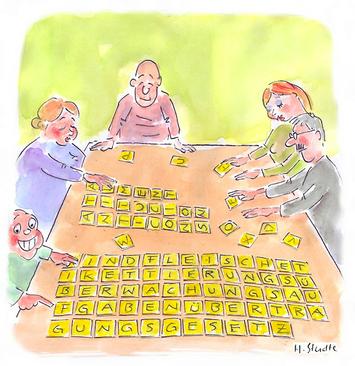 This site is no dictionary.com. We prefer to “riff” on words rather than act as an authority or stretch your vocabulary. Still, sometimes we run into a stretttttttttchy word like “sesquipedalian” that stops us short.
This site is no dictionary.com. We prefer to “riff” on words rather than act as an authority or stretch your vocabulary. Still, sometimes we run into a stretttttttttchy word like “sesquipedalian” that stops us short.
“Sesquipedalian” may sound like a six-footed monster or belabored joke, but surprise! The definition:
adj.
1. given to using long words.
2. (of a word) containing many syllables.
noun
3. a sesquipedalian word.
Literally, it means “a foot and a half long.” Let’s break it down: sesqui- comes directly from the Latin sesqui (“one and a half”); + pedal, from Latin pedis, form of pes (“foot”), + adjective suffix –alis or in this case -ian.
In order for “sesquipedalian” to be truly a foot and a half long, it would have to be written in 74-point type. I know, because I tested it.
Sesquipedalian is not a great Twitter word. At 14 characters, it would take up a tenth of your tweet. You’d think I could get away with tweeting out 10 sesquipedalians at once but, because of spaces, Twitter restricts me to eight. It works without spaces, but it’s a little hard to read that way. I know, because I tested it.
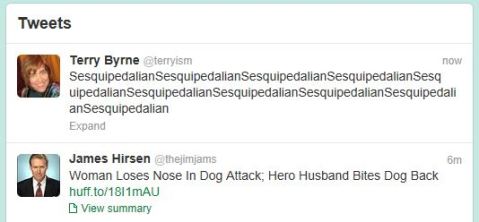
(UPDATE: That tweet, by the way, has become my most favorited tweet by dozens of strangers worldwide. Who knew there were so many on Twitter thirsty for long words?)
Of course, you are what words you use. Meaning: using the word “sesquipedalian” could make you it. Nyah-nyah.
30-Second Word Whoop: “Orbit”
Love those Orbit gum ads. Kinda loopy, right?
Quite possible those creatives were smoking falafel to come up with their “Falafel” ad concept. Definitely an international flavor to this gum. Or shall we say “universal”? (See “Taco” or “Kabob” or any number of globular comfort foods served up from this marketing buffet.)
Although “orbit” is a far-out term, referring to “the path of a celestial body or an artificial satellite as it revolves around another body” or even “one full revolution of that body,” it is a perfect example of how the cosmos mirrors a body’s microcosm.
 “Orbit” also refers to each bony socket of the skull that holds our eyeballs. (Or in reference to other animals, it is the skin surrounding the eye of a bird … or the hollow in which lies the eye or eyestalk of an insect or other arthropod.)
“Orbit” also refers to each bony socket of the skull that holds our eyeballs. (Or in reference to other animals, it is the skin surrounding the eye of a bird … or the hollow in which lies the eye or eyestalk of an insect or other arthropod.)
It’s from the Latin orbita, or “course,” and orbis meaning “circle” or “orb.” That alone sounds spacey.
On an atomic level, it is the path of an electron in its motion around the nucleus of an atom. Beyond the physical, “orbit” can define any observable range of activity, experience, or knowledge. It’s also apparently a video game.
Add a “z” to get Orbitz, the online travel company that invites you to circumvent the globe and add to your range of activity, experience and knowledge. Just be sure to pack a pack of Orbit gum to take care of any foreign food particles lingering behind.
What goes around comes around.
Related articles
- Orbit Girl Returns With More Talking Food (adrants.com)
- Orbit Gum Helps You Vanquish Giant Annoying Talking Meat and Potatoes (adweek.com)
30-Second Word Whoop: “Trap”

Remember the board game “Booby-Trap” from the Sixties-Seventies? If you do, you may have a mind like a steel trap. (Photo courtesy of Phil Romans, Flickr)
“It looks like a trap!”
“Shut your trap.”
“He bears the trappings of a fool.”
None of these machinations of “trap” is an open-shut case. First off, identifying a trap would defuse its power. In case two, your free will defies such a command. In the third usage, the meaning is “disguised”: Trappings might say one thing and reveal another.
 Sometimes a trap is a good thing. A lint trap protects your dryer. A sink trap protects your plumbing. A U-shaped or S-shaped pipe can protect you by trapping harmful gases. In Scotland, a trap, or stepladder, can help you reach the attic to set critter traps. A death trap for mice, and such. Yet a better mousetrap refers to a springboard for creativity, a snappy brain.
Sometimes a trap is a good thing. A lint trap protects your dryer. A sink trap protects your plumbing. A U-shaped or S-shaped pipe can protect you by trapping harmful gases. In Scotland, a trap, or stepladder, can help you reach the attic to set critter traps. A death trap for mice, and such. Yet a better mousetrap refers to a springboard for creativity, a snappy brain.
Sporting types are aces when it comes to traps. A trap can refer to a device that hurls clay pigeons into the air to be shot at by trap shooters. The stalls that racing greyhounds are released from are called traps. In golf (or putt-putt), you can try to avoid the traps, or bunkers, but they tend to sneak up on you (OK, me). There is no trapdoor.
Other pleasurable applications of trap include a light, two-wheeled carriage, and percussive instruments used in jazz.
Computers are not only time sucks, they are laced with internal traps: built-in interruptions in software triggered by some exceptional action allows the operating system to take over for a moment, then return control to the user when the coast is clear. But I don’t really understand this definition, so moving on …
To have a mind like a steel trap usually means you’re sharp — you process ideas quickly and have quick recall, not unlike a computer.
On the other hand, the Cockney idiom pony and trap — often shortened to “pony” — is defined as rubbish, nonsense or something of poor quality. Like most Cockney nonsensical idioms, the word “trap” is inserted only because it rhymes with “crap.”
The origins of booby trap — hazard a guess? — are much contested.
Could be nautical:
“In need of a bit of dietary variety, sailors would set up a simple rope noose on the decks of their ships baited with bread or stale biscuits. Passing seabirds, like boobies, would land on deck seeking rest or shelter and be lured and caught in the rope.”
Could be simply slang, referencing nincompoop:
Coined by our Colonial cousins, meaning dope/simpleton, a booby trap is any sort of trap, e.g. an object balanced over a door, that would catch a simple person by surprise.
“Booby” meaning “a dunce, a nincompoop,” is recorded in English as far back as 1599, probably deriving from the Spanish “boho” (a fool), which may come from the Latin balbus or “stammering.” A “booby hatch,” referring to an insane asylum, may have its origins as the term for a police wagon used to take outlaws to jail, which is traced to 1776. (Source: Encyclopedia of Word and Phrase Origins by Robert Hendrickson. Facts on File, New York, 1997)
Of course, the Mafia and modern wars cast quite a grim shade of meaning to “booby trap.”
In the so-called good ol’ days, a girl would set a bunny trap for someone she’s sweet on, providing unlimited sex and ceasing to use birth control. (You recall? The old pregnancy test involved sacrificing a bunny.) Now who’s the nincompoop?
I imagine the word “trap” is just one more pitfall that non-native English speakers must learn to avoid.
30-Second Word Whoop: “Content”
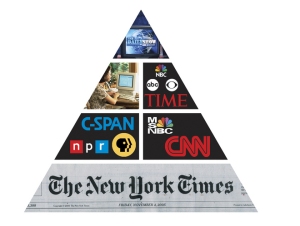
A healthy media diet?
It finally happened. My reading skills failed me.
As digital journalism scooches into the spot old-fashioned journalism used to live in my brain — you know, SEO (Search Engine Optimization) supplanting the 5 W’s (Who, What, Where, When and hoW) and all that — I mistook the word “content” here: “(So-and-so) upped the ante in the technology race aimed at proving it’s not content simply to be …”
Oh! You mean “content,” accent on the “tent,” as an adjective … a la “satisfied” or “smug” or, far be it for me to assume, “happy.”
I first read it as evidence it didn’t qualify as “content,” accent on the “con,” as in the noun describing “substantive information,” “news product” or even “filler” — the stuff we’re filling websites and news holes with these days.
Wowie zowie. As we race to provide content for various digital delivery systems, have we left out one key ingredient? Our happiness?
Journalists were never a very happy bunch, anyway, true that. And most news sites these days are content merely to have fresh if not original content, doesn’t much matter what it is.
 “Content” is an example of a homograph: a word that has the same spelling as another word but has a different sound and a different meaning, like lead, wind, bass. Not to be confused with a homophone (pray/prey) or a homonym (heir/air). Forsaking for the moment the argument that some homophones are homonyms or a homonym must be both a homograph and a homophone to qualify as a homonym, back to the content at hand.
“Content” is an example of a homograph: a word that has the same spelling as another word but has a different sound and a different meaning, like lead, wind, bass. Not to be confused with a homophone (pray/prey) or a homonym (heir/air). Forsaking for the moment the argument that some homophones are homonyms or a homonym must be both a homograph and a homophone to qualify as a homonym, back to the content at hand.
As a plural noun, “contents” can mean something that is contained or topics covered in a book … or perhaps on a table, as in “table of contents,” jk. “Content” alone can refer to significance or profundity — a jukebox musical that lacks content.
What came first? The filler (content) or the fulfillment one gets from it (content)?
It seems the filler did, dating to 1375–1425 late Middle English, derived from the Medieval Latin contentum, the noun form of a neutered Latin contentus, the past participle of continēre, to contain. Fulfillment came as an afterthought in 1400–50 late Middle English, deriving from Latin contentus satisfied, special use of past participle of continēre.
Still, closely aligned. Like a pie filling and the feeling you get having fully digested it. Another thing we journalists know only too well.

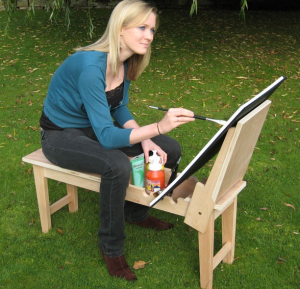






![IMG_1329[1]](https://wordwhoops.files.wordpress.com/2013/05/img_13291.jpg?w=448&h=336)




